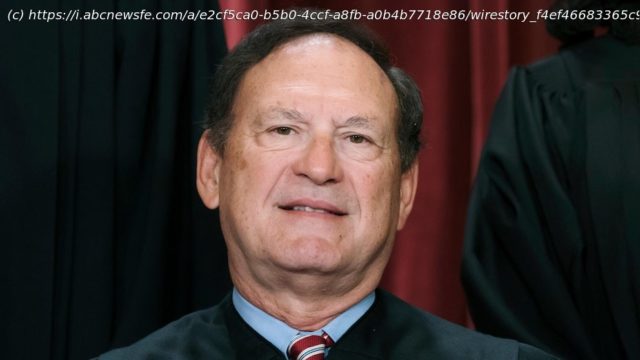In declining to step aside from two high-profile Supreme Court cases, Justice Samuel Alito has provided a rare window on the opaque process by which justices decide to recuse themselves
In declining to step aside from two high-profile Supreme Court cases, Justice Samuel Alito on Wednesday provided a rare window on the opaque process by which justices decide to step aside from cases.
Alito faced calls from Democrats to recuse from two cases involving former President Donald Trump and Jan. 6 defendants because of the controversy over flags that flew over his homes.
Both flags were like those carried by rioters who violently stormed the Capitol in January 2021 while echoing Trump’s false claims of election fraud.
Revelations about the flags came as the court is considering cases related to the Jan. 6 riot, including charges faced by the rioters and whether Trump has immunity from prosecution on election interference charges.
In letters to members of Congress, Alito said he had no involvement in flying an upside-down flag over his home in 2021 and an “Appeal to Heaven” flag at his New Jersey beach house last year. He said his wife, Martha-Ann, was responsible for both flags. His impartiality, he said, could not reasonably be questioned.
The explanation is unlikely to satisfy Democratic critics, but they have little recourse.
A look at the Supreme Court’s recusal process:
THERE OUGHT TO BE A LAW
There is, as well as a recently adopted Supreme Court ethics code to guide the justices, though there’s really no means of enforcing either.
A law that applies to Supreme Court justices and all other federal judges lays out several criteria that require recusal.
The language most relevant in Alito’s case reads, “Any justice, judge, or magistrate judge of the United States shall disqualify himself in any proceeding in which his impartiality might reasonably be questioned.”
The court’s code of conduct says a justice ordinarily has a duty to take part in cases since justices, unlike lower-court judges, can’t be replaced when there’s a conflict.






